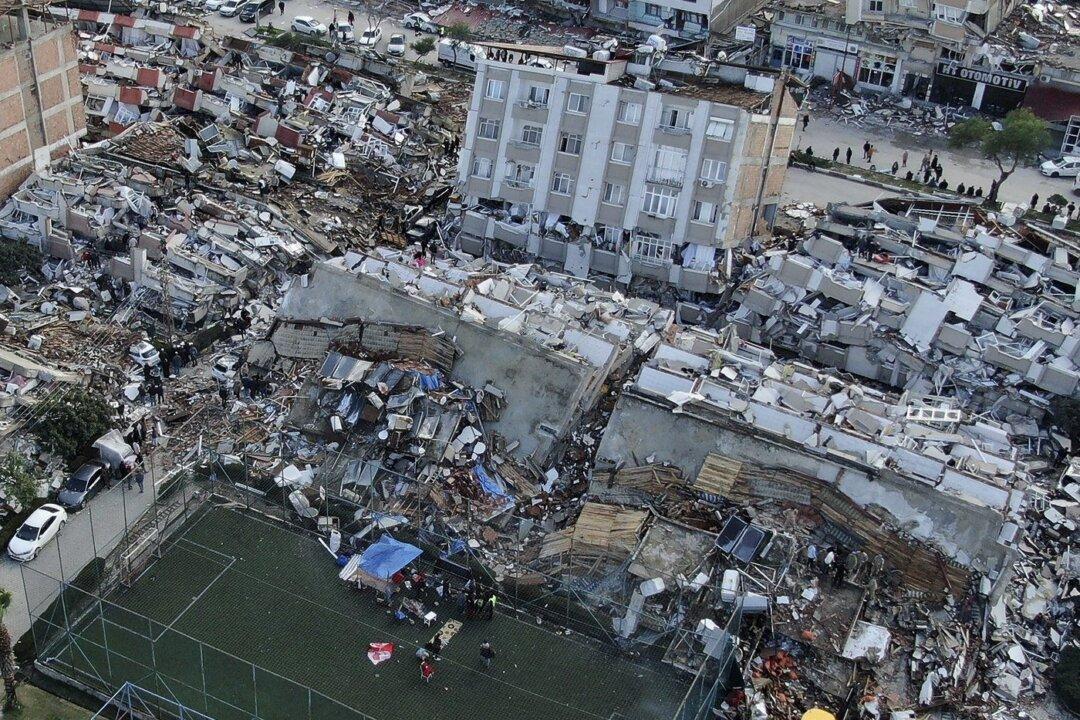Turkish President Recep Tayyip Erdogan has acknowledged that there were issues with the ongoing earthquake relief efforts as he faces pressure over the government’s allegedly poor response to the crisis while the death toll from the tragedy nears 13,000 in the country.
“Of course, there are shortcomings. The conditions are clear to see. It’s not possible to be ready for a disaster like this,” Erdogan said on Feb. 7 while visiting Hatay, which has the highest death toll in the country, according to Sky News. “This is a time for unity, solidarity. I cannot stomach people conducting negative campaigns for political interest.”





